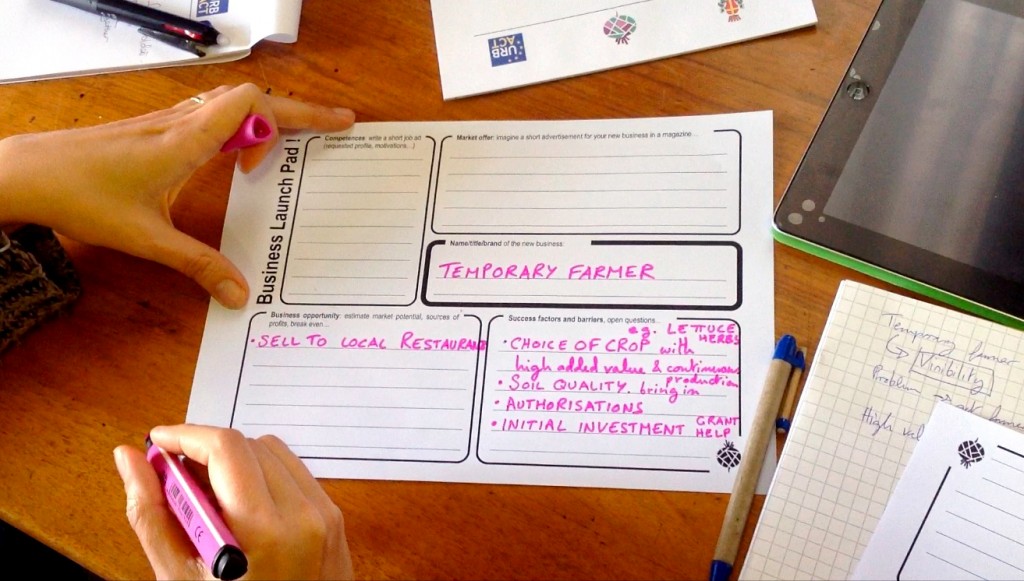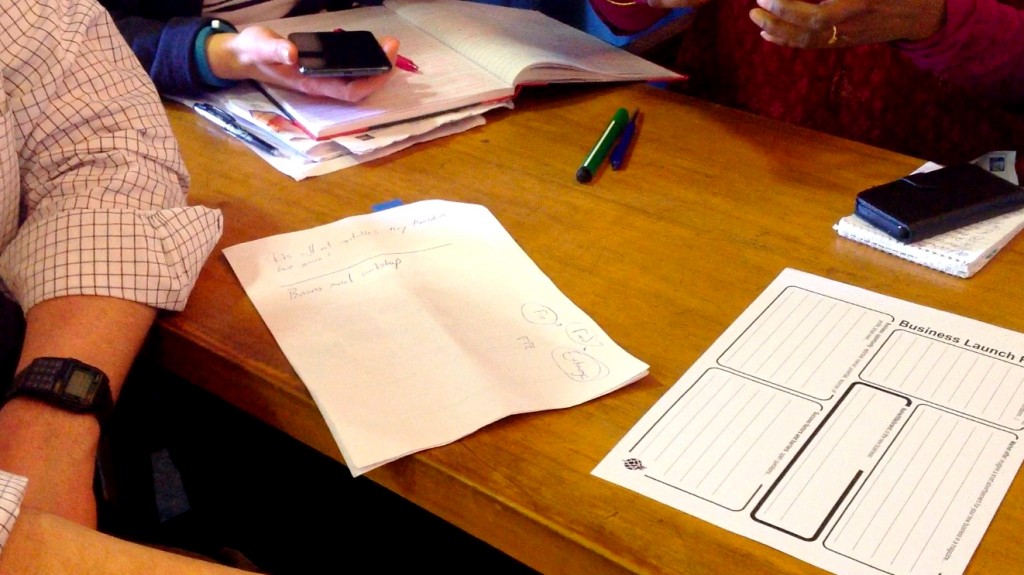Business launch pad / Workshop
The aim of Business launch pad tool is to transform single bottom-up initiatives into tentative self-standing businesses able to upscale the local sustainable food system and generate jobs. ULSGs constitute efficient incubators: all key stakeholders are represented, connected and able to both stimulate and support local entrepreneurship. The tentative new business solutions emerging are then used to stimulate the generation of related policy recommendations that will be available to enrich and orient the LAP.
The workshop process is organized as a role playing game. Roles are assigned to the consortium participants according to their skills and interests: business entrepreneurs, local authorities, key stakeholders, etc. A selection of hypothesis stimulating a potential to generate business and employment are presented to kick-off the session. Participants in groups of 3-4 focus, choose or invent promising opportunities for the local context.
Groups imagine each new business opportunity filling-in a template mimicking a Business Model Canvas in a more lively format: market offer is pictured imagining a short advertisement for the new business in a magazine; requested competences are defined through writing a short job ad with requested profile, motivations, etc.; business opportunity are framed with estimation of the market potential, sources of profits, break even, etc.; success factors barriers and open questions are described; and finally formulation of a proper name, title or brand helps to picture the new business.
Presentations of the pitches by each team are shared and videotaped. Groups then generate policy recommendations, public initiatives and conditions likely to favour the emergence of the new business created and therefore to help shaping a LAP based on the emerging business environment…
Which tentative businesses have emerged from the pilot exercise in during transnational meeting in Messina?
- Plant nursery
Plants of local variety, herbs, edible plants and trees, decorative flowers… are sold in order to satisfy balcony gardening demand and grow interest in social agriculture within the city. - Temporary farmer as social enterprise
Food is grown on the doorsteps: fresh salads and herbs with high added to be sold to local restaurants. - Eco-exchange
Training in horticulture and in production of organic fertilizer followed by exchange service between the newly established food growers and the eco-fertilizers producers . - Urban Farming Kit for Dummies
Commercialization of a gardening starting-kit based on easy tasks (filling pots, selecting seeds, designing anti-snakes protections, etc.) for those who want to have a garden without dedicating too much time and competences. - Food Coach
Farmers get paid by communities to improve their gardening skills and their production of veg and fruits as well as their practices in food preservation and storage.
What kind of enabling policy framework is requested to facilitate the emergence of these tentative businesses?
- Facilitating match making and networking between stakeholders likely to constitute the partnership
- Investigating forms of co-operations or partnerships with the municipality
- Setting-up information resource centre on urban farming accessible to these emerging businesses
- Providing forms of starting financial support adapted to kick-off businesses
- Improving legislation flexibility and practice of temporary experimentation to allow new forms of businesses to emerge
- Support the visibility of current urban farming practices in the city in order to show change in progress

